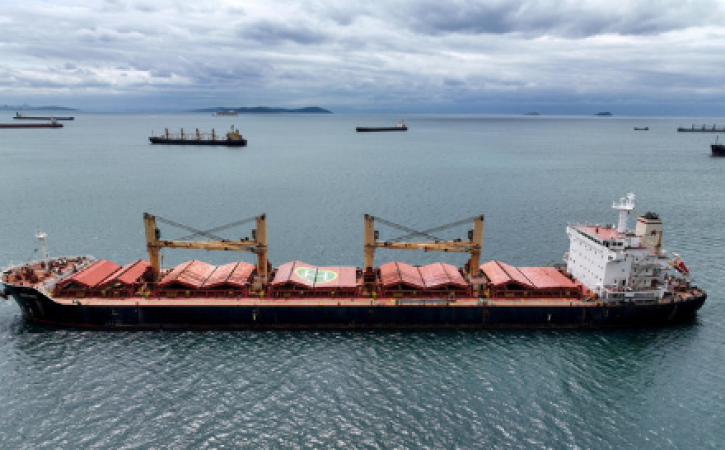
UNO: The United Nations reported on Friday that a deal permitting the secure export of grain and fertiliser during times of war from Ukrainian Black Sea ports has not yet resumed full operations after coming to an end prior to Russia's decision to extend it last week.
The Black Sea Grain Initiative, which was negotiated by the UN and Turkey with Russia and Ukraine last July to try to ease a global food crisis made worse by Moscow's invasion of Ukraine, covers three ports, but the UN reported that no ships have been permitted to enter Pivdennyi (Yuzhny) port since April 29.
Turkiye and the United Nations "are working closely with the rest of the parties with the aim to resume full operations... and lift all impediments that obstruct operations and limit the scope of the Initiative," the UN said in a statement.
Tuesday, as Russia complained that it had been unable to export ammonia via a pipeline to Pivdennyi as per the agreement, Ukraine accused Russia of effectively cutting Pivdennyi port out of the Black Sea agreement. The Black Sea Agreement also allows for the export of fertiliser, including ammonia, the UN stated on Friday, but "there have been no such exports so far."
A Joint Coordination Centre (JCC) in Istanbul, which is composed of representatives from the Ukraine, Russia, Turkey, and the UN, is responsible for authorising ships and managing inbound and outbound vessel inspections under the terms of the Black Sea grain export agreement.
Also Read: Top French terrorist and his wife were sentenced to prison
"There are 54 vessels waiting to move to Ukrainian ports, according to information provided by the Ukrainian delegation to the parties at the JCC. 11 of these have been shared with the JCC for registration, according to the UN.
The JCC did not register any new ships on Thursday, but two were agreed upon on Friday, according to the UN, which also noted that there are 13 ships currently loading in Ukrainian ports, including six in Chornomorsk and seven in Odesa.
Additionally, it noted that in May, the average daily inbound and outbound inspections fell to 3.2, which is the lowest number since operations got underway in August.
On Thursday, Russia gave notice that it would not agree to extend the agreement past July 17 if conditions to increase its exports of grains and fertiliser were not met. Prior to deciding last week to extend it for another 60 days, it made the same threat and demands in March.
Also Read: Jailed Kashmir rebel leader is wanted by India for execution
The restart of the pipeline that will carry Russian ammonia to the Pivdennyi port in Ukraine for export to international markets and the reconnection of Russia's agricultural bank, known as Rosselkhozbank, to the SWIFT global payment network appear to be Russia's two top priorities.
A three-year agreement was also reached last July, in which the UN agreed to assist Moscow in executing its food and fertiliser shipments, in an effort to persuade Moscow to permit Ukraine to resume Black Sea grain exports.